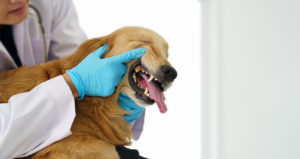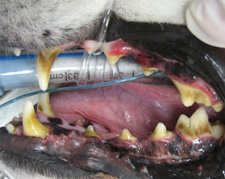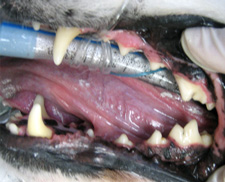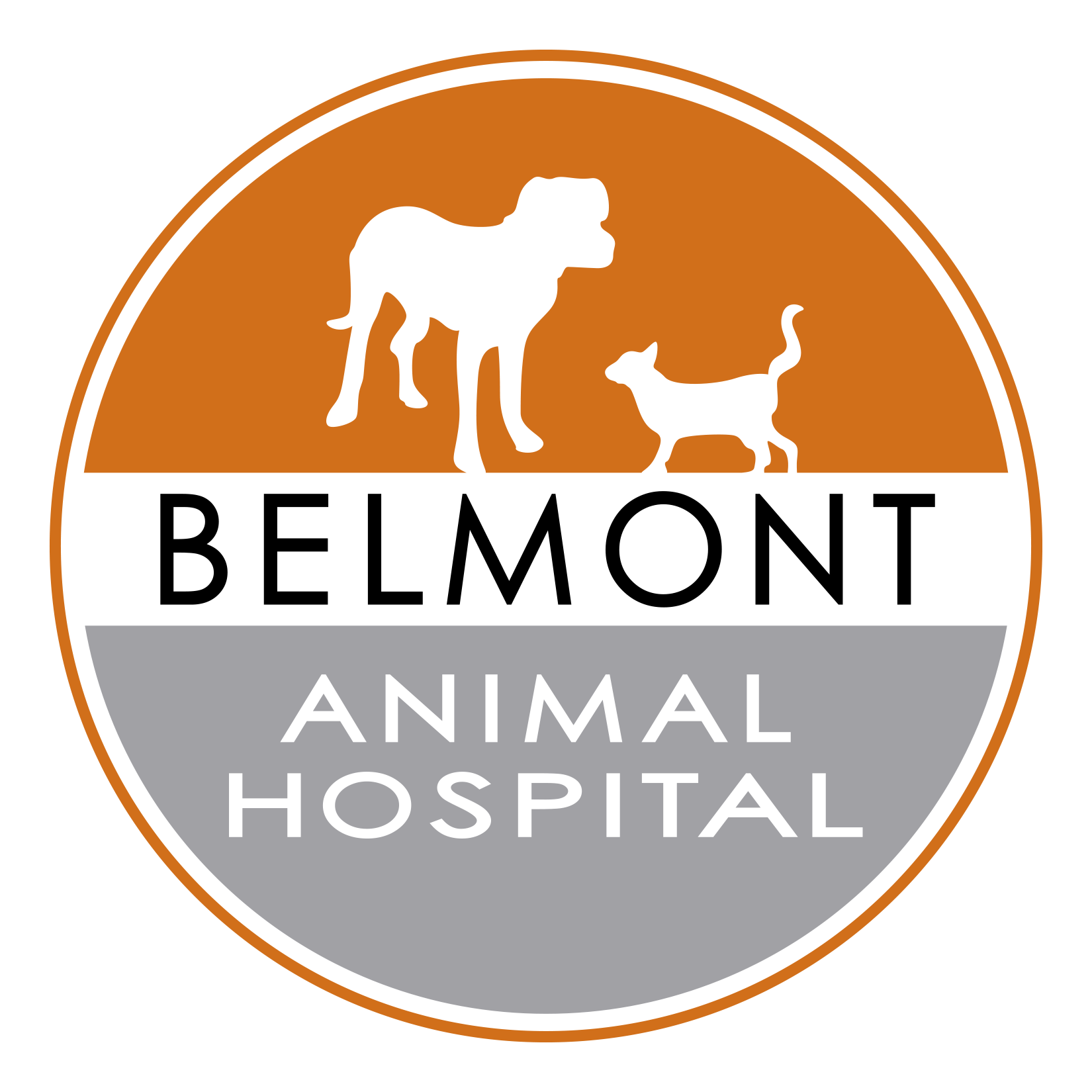
Proper Dental Care
A proper dental routine can add 3-5 years to your pet’s life. Just as oral health is an important part of our general health, our pets are also affected by oral disease. Recent studies have shown that an astonishing 85% of dogs and 70% of cats have oral disease by age three.
Dental Diseases to Watch Out For
Periodontal Disease
Periodontal disease is a serious condition that starts out as a bacterial film, called plaque, that attaches to the teeth. If not removed through regular brushing, plaque spreads below the gum line, leading to inflammation of the gums and tooth root infections. The bacteria associated with oral disease can spread through your pet’s bloodstream and cause damage to other organs such as the heart, liver, and kidneys.

Actual OVC patient with build-up of plaque, tarter, and inflamed gums.

Specialized dental equipment was used to restore oral health while patient was comfortably asleep.
Unlike human patients, we cannot ask our canine and feline companions to sit still and open wide during their professional dental cleaning. That is why we utilize the safest anesthetics available to keep your pet comfortably asleep during the procedure. Without anesthesia, there is no way to properly clean, scale, and polish your pet’s teeth and gums. The good news is that your veterinarian can remove years of plaque and tarter build up and, if necessary, extract broken or infected teeth that would have caused your critter pain and other problems down the road.
Canine Dental Disease
Although some canine breeds have a genetic predisposition to dental disorders, all dogs are susceptible to the effects of periodontal disease. There are many factors that affect the development of dental disease in dogs, including age, diet, spacing of teeth, lack of oral hygiene, and chewing habits. Periodontal disease is a progressive condition that can lead to loose teeth, abscesses, bone loss, and infection. In severe cases, bacteria can enter the bloodstream and cause infection of the heart valves (endocarditis), liver, and kidneys.
Feline Dental Disease
Feline odontoclastic resorptive lesions (FORL) is a very common oral disease seen in cats over the age of two. By the age of five, the American Veterinary Dental Society estimates that 72% of cats have at least one tooth affected by FORL.
The disease can be compared to cavities in humans—cells known as odontoclasts start attacking the tooth enamel along the gum line or “neck of the tooth.” As the tooth structure dissolves, a cavity or hole will develop, exposing the sensitive root canal. If left untreated, the tooth will break off. Eventually the gum tissue will grow over the root, encapsulating the painful lesion. This process can take weeks or months of oral pain to resolve. If you have ever had a tooth fracture or a deep cavity, you will understand what your feline friend is experiencing.
Signs for FORL Include:
- Increased drooling
- Red or pink spot on tooth at the gum line
- Difficulty chewing or chewing on one side
- Wincing or chattering of teeth when area around mouth is touched
- Uncomfortable eating or preference for canned over dry food
- Many cats will have no outward signs since they are adept at hiding pain and the painful tooth has become their “baseline”
Signs of Dental Disease
- Tartar and calculus (yellow-brown discoloration on the tooth)
- Gingivitis (red, swollen, or bleeding gums)
- Oral odor (dogs and cats should not have bad breath)
- Loose or missing teeth
- Loss of appetite
- Difficulty eating
- Increased drooling
- Pawing at the mouth
Dental Disease Prevention
The most effective way to maintain your dog or cat’s dental health includes regular veterinary dental checkups, home oral care, and professional dental cleanings as needed. Starting a routine of good dental hygiene early in your pet’s life is essential to his or her overall health; however, cats and dogs can learn to accept daily brushing at any age.
Our dental treatment center offers advanced instrumentation for routine cleanings as well as special procedures such as biopsies, oral surgery, and extractions of broken or infected teeth.
Learn more about the important role digital dental X-rays play in diagnosing and treating dental conditions.
Dental Care for Pets in Nashville, TN
To make an appointment for a dental exam or dog or cat teeth cleaning, call us at 615-383-1000.
Explore Our Complete List of Veterinary Services in Nashville, Tennessee
- Echocardiography
- Dermatology
- Ultrasound
- Senior Pet Care
- Pain Management
- In-House Laboratory
- Gastropexy
- Ophthalmology
- Surgery
- Pet Spaying and Neutering
- Vaccines for Pets
- Parasite Prevention
- Pet Wellness Exams
- Nutrition
- Pet Orthopedic Surgery
- Radiology
- Microchipping
- International Health Certificates
- Emergency and Urgent Care
What's Next
Call Us or Schedule an Appointment Online
Meet with a Doctor for an Initial Exam
Put a Plan Together for Your Pet

